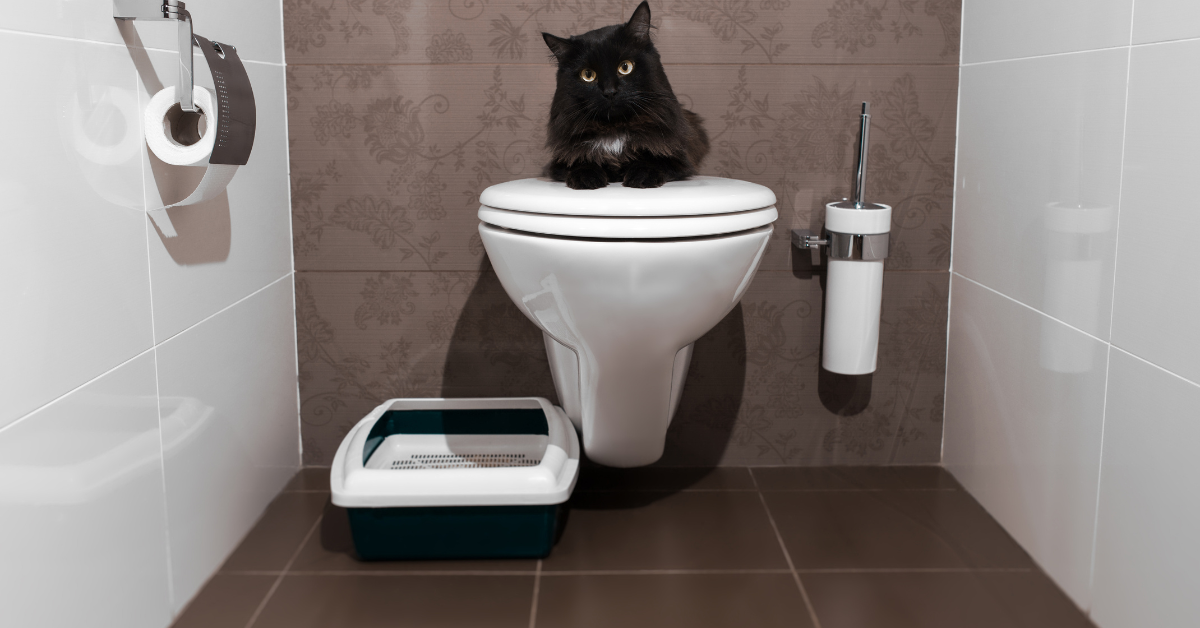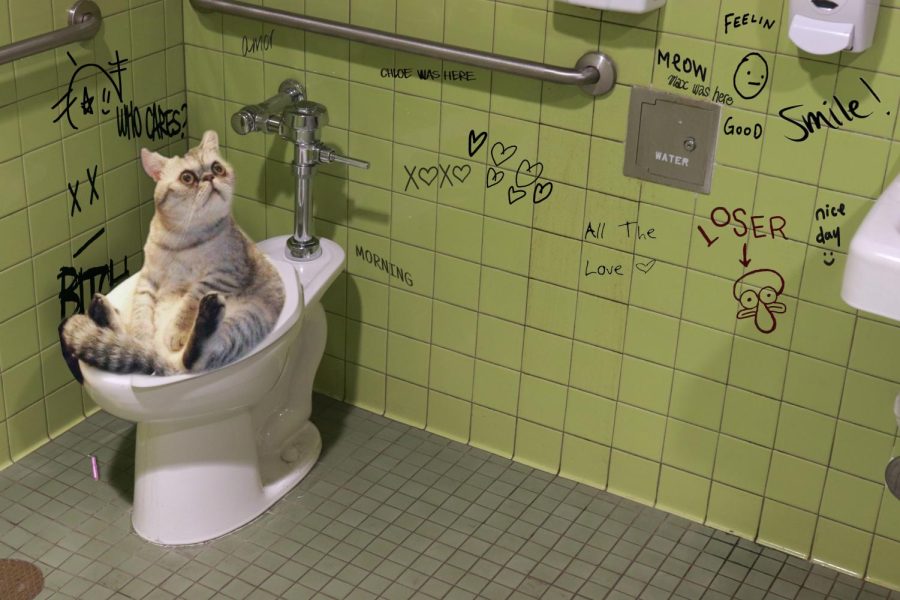Avoid Flush Cat Poop Down Your Toilet - Safeguard Your Pipes Infrastructure
Avoid Flush Cat Poop Down Your Toilet - Safeguard Your Pipes Infrastructure
Blog Article
How do you feel in relation to How to Dispose of Cat Poop and Litter Without Plastic Bags?

Introduction
As cat proprietors, it's vital to bear in mind exactly how we deal with our feline buddies' waste. While it might seem convenient to flush pet cat poop down the bathroom, this practice can have harmful consequences for both the environment and human health.
Alternatives to Flushing
Fortunately, there are much safer and more liable means to throw away cat poop. Think about the following choices:
1. Scoop and Dispose in Trash
The most typical approach of throwing away cat poop is to scoop it right into a naturally degradable bag and throw it in the garbage. Make certain to utilize a committed clutter scoop and get rid of the waste promptly.
2. Usage Biodegradable Litter
Opt for biodegradable pet cat trash made from products such as corn or wheat. These clutters are environmentally friendly and can be safely thrown away in the garbage.
3. Hide in the Yard
If you have a lawn, consider burying cat waste in a marked area far from vegetable gardens and water resources. Be sure to dig deep sufficient to stop contamination of groundwater.
4. Install a Pet Waste Disposal System
Invest in an animal waste disposal system specifically developed for pet cat waste. These systems use enzymes to break down the waste, decreasing smell and environmental effect.
Health Risks
In addition to environmental worries, purging feline waste can also posture health and wellness threats to people. Cat feces might contain Toxoplasma gondii, a bloodsucker that can create toxoplasmosis-- a potentially serious health problem, specifically for expectant ladies and people with damaged body immune systems.
Environmental Impact
Flushing feline poop presents damaging microorganisms and parasites into the water system, presenting a substantial threat to marine ecosystems. These contaminants can negatively influence marine life and concession water top quality.
Conclusion
Responsible pet ownership extends beyond providing food and sanctuary-- it additionally involves appropriate waste monitoring. By avoiding purging feline poop down the toilet and opting for alternate disposal techniques, we can decrease our ecological impact and secure human health and wellness.
Why Can’t I Flush Cat Poop?
It Spreads a Parasite
Cats are frequently infected with a parasite called toxoplasma gondii. The parasite causes an infection called toxoplasmosis. It is usually harmless to cats. The parasite only uses cat poop as a host for its eggs. Otherwise, the cat’s immune system usually keeps the infection at low enough levels to maintain its own health. But it does not stop the develop of eggs. These eggs are tiny and surprisingly tough. They may survive for a year before they begin to grow. But that’s the problem.
Our wastewater system is not designed to deal with toxoplasmosis eggs. Instead, most eggs will flush from your toilet into sewers and wastewater management plants. After the sewage is treated for many other harmful things in it, it is typically released into local rivers, lakes, or oceans. Here, the toxoplasmosis eggs can find new hosts, including starfish, crabs, otters, and many other wildlife. For many, this is a significant risk to their health. Toxoplasmosis can also end up infecting water sources that are important for agriculture, which means our deer, pigs, and sheep can get infected too.
Is There Risk to Humans?
There can be a risk to human life from flushing cat poop down the toilet. If you do so, the parasites from your cat’s poop can end up in shellfish, game animals, or livestock. If this meat is then served raw or undercooked, the people who eat it can get sick.
In fact, according to the CDC, 40 million people in the United States are infected with toxoplasma gondii. They get it from exposure to infected seafood, or from some kind of cat poop contamination, like drinking from a stream that is contaminated or touching anything that has come into contact with cat poop. That includes just cleaning a cat litter box.
Most people who get infected with these parasites will not develop any symptoms. However, for pregnant women or for those with compromised immune systems, the parasite can cause severe health problems.
How to Handle Cat Poop
The best way to handle cat poop is actually to clean the box more often. The eggs that the parasite sheds will not become active until one to five days after the cat poops. That means that if you clean daily, you’re much less likely to come into direct contact with infectious eggs.
That said, always dispose of cat poop in the garbage and not down the toilet. Wash your hands before and after you clean the litter box, and bring the bag of poop right outside to your garbage bins.
https://trenchlesssolutionsusa.com/why-cant-i-flush-cat-poop/

Hopefully you enjoyed our article about Can You Flush Cat Poop Down The Toilet?. Thank you so much for finding the time to read through our content. Sharing is good. Helping people is fun. Thanks for going through it.
Call Today Report this page